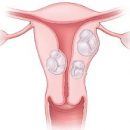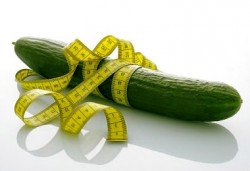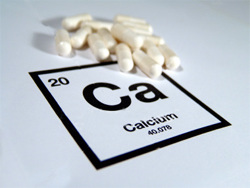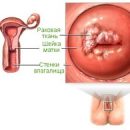What is a disease?

Compulsive overeating disorder implies pathology for which the uncontrolled eating consumption is characterized throughout the day, regardless of the physical feeling of hunger. The patient constantly eats edible reserves, not receiving any pleasure from it, and on the contrary - feeling only guilt and depression after meals. On all features of the disease will tell the MPS.
The very designation of the term «Comculsive» Indicates cyclically repeated behavior aimed at eliminating the problem. In a specific case, targeted actions are based on intrusive attitude to food, when a person wants to eat not for the thickening of hunger, but to remove emotional discomfort. Food in this case acts as a method of combating the problem. Thus, compulsive insatiability is a disease, both food behavior and mental.
The moment of such an increasingly accompanied by a sharp feeling of shame, depression and guilt for the deed. At this time, a person feels heavenly, disgusting and weak, sees himself a loser, because his efforts to achieve «necessary» Results are not crowned with success.
Causes of compulsive insatiability

It is worth thinking about possible pathology when you watch the following symptoms of overeating:
- Break between meals less than 2 hours.
- You are aware that we overeat, but cannot prevent it.
- Food consumption does not occur during physical hunger, and when emotional depression comes - sadness, shame, longing, anger, anxiety, etc.
- Eating cooked food happening fast enough.
- You do not get moral satisfaction after eating, and on the contrary, the bad mood is aggravated.
- After taking meals in the stomach, pain may occur, as well as discomfort from the volume of eaten.
- Man begins to feel shame and guilt for ate too much food.
- Most thoughts are spinning around one topic - food.
- Feeling of overweight, even when there is no such problem.
Consequences of compulsive insatiability
The result of uncontrollable overeating is always sad. Patients violate not only psychological comfort, but also provoke the emergence of serious medical diseases. These include the following:
- elevated cholesterol in blood;
- problems of the functioning of the gallbladder;
- Muscular Causes;
- increased blood pressure;
- the formation of oncological diseases;
- problems with the gastrointestinal tract;
- osteoarthritis;
- diabetes 2 type;
- obesity;
- headaches, migraine, weakness;
- Cardiovascular diseases;
- impairment of the menstrual cycle;
- articular pains;
- insomnia And depression.
Diagnosis of the disease and its treatment

Diagnosis «Compulsive overeating» can only be installed a specialist, conducting proper tests, diagnosis and conversation with the patient. The doctor needs to establish how a person belongs to food, to his personality and appearance. All these questions, along with medical analyzes, will help to reflect the full picture of the disease. In addition, the appointment of many drugs, in particular, antidepressants, is possible only after the passage of the psychotherapist.
Treatment of compulsive insatiability, mainly lies in the passage of psychotherapy, which specialist picks up for each specific case. Since the reasons for overeating are often associated with emotional injuries, most people are difficult to advertise their weakness, and they will need the help of a qualified specialist. Patient will need to show random power, patience and exposure to get rid of this ailment once and for all. Psychotherapy aimed at eliminating the root cause of stress, negative thoughts and depression includes the following steps:
- Cognitive therapy - helps to eliminate the factors that served as a disorder. After passing the course of treatment, a person can independently control his behavioral and gastronomic habits.
- Interpersonal therapy - aimed at improving the patient's self-esteem. As a result of sessions, the patient gets rid of a negative attitude towards himself, acquires understanding of its significance and adapts to the correct communication skills in society.
- Dialectic therapy - is focused on the fact that the patient can independently deal with emerging stress factors, fully controlling its emotions. Due to sessions with a psychotherapist, a person stops «eat» Problem.
An important role in the process of treatment of compulsive insatiability is assigned to a nutritionist. Specialist helps to choose the desired diet for the patient, setting the frames and rules of food habits. Undoubtedly, the fight against this problem is a long and driving occupation, but it gives the result if a person has enough strength and will to change the image of his thinking and life.









